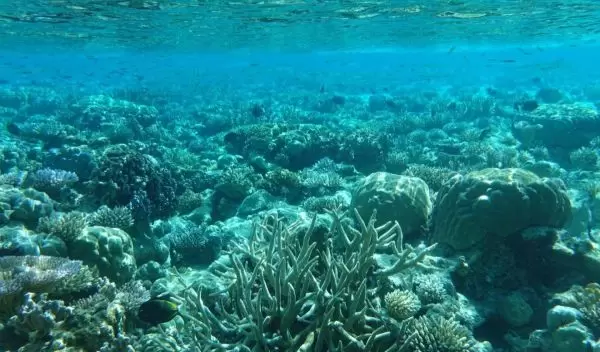
Researchers identify coral reef 'bright spots'
Marine heatwaves are threatening coral reefs around the world. A new study led by researchers at Florida Tech has identified coral reef "bright spots" that will likely maintain relatively high coral cover through climate change, as well as "dark spots" that are likely to lose significant coral cover.
The findings, from research led by Florida Tech scientist Rob van Woesik, were published in the journal Global Change Biology. The study is based on an extensive look at thousands of sites around the globe. The research was supported by the U.S. National Science Foundation and conducted in part by the organization Reef Check using a standard method.
"While coral reefs continue to be threatened by climate change, our study sought to locate reefs around the world that may survive such temperature stressors, in the hope that we could turn those 'bright spot' reefs into sanctuaries, or climate change refuges," said van Woesik.
"We have developed maps of future coral cover based on climate change projections," said co-author Shannon Sully. "Local managers can use them as decision-support tools for conservation efforts."
The reason some sites are bright spots and some are dark spots is still being determined, but the study suggests that larger-scale, coordinated management efforts could ensure that reefs with the greatest chance of survival receive specific conservation focus.
The researchers identified reefs in Indonesia, Malaysia, the central Philippines, New Caledonia, Fiji and French Polynesia that could be localities for multinational networks of protected areas.
